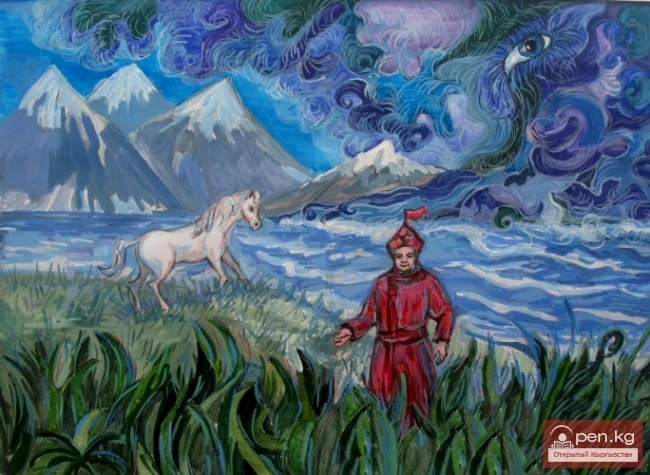Horses in the Lives of Kyrgyz People
The Kyrgyz determined a person's age using the muchel — a 12-year animal cycle. It was also used to predict a person's future. It was believed that in the first year of each cycle, one should not undertake significant endeavors, as the outcome would be negative. In the epic "Manas," there was a warning to the hero Jolo, whose year of birth coincided with the beginning of the animal cycle, that going on a campaign was considered dangerous. The seer emphasized that the month was also unfavorable for horses. Horses held great importance in the life of the Kyrgyz — both in agriculture and in military affairs. Therefore, before going on a campaign, the positions of the stars were determined to see if there would be luck not only for the warriors but also for the steeds. Overall, there are many very interesting sayings about horses among the Kyrgyz: a horse is the wings of a man; without a horse, you are no longer a warrior; with a horse, you are a person; without a horse, you are a shadow; as the master is, so is the horse; if you have a horse, try to see the world (new lands) while your father is alive, get to know good people with its help, etc. Due to an outstanding steed, a fast pacer, significant quarrels and enmities often flared up, sometimes leading to bloody clashes between individuals, clans, and tribes (at least this explanation for feuds is given in folklore sources).
In major races, when all known steeds participated, which always came in first (these races included not only Kyrgyz but also representatives of neighboring peoples), huge prizes were announced for the first place (several dozen, and sometimes hundreds of animals). Victory in such races was rewarded not only materially but also had a moral aspect (honor and glory were bestowed upon both the owner of the steed and his tribe, clan, and people).
None of the domestic animals were valued as highly by the Kyrgyz as the horse:
My steed, my steed —
The priceless wealth of a warrior.
P. P. Semenov-Tyan-Shansky once accurately noted and appreciated the important role of horses in the life of the Kyrgyz: "The Kyrgyz, spending half their lives on horseback, become accustomed to them as inseparable companions and friends, so that the personality of the animal is taken into account in its attachment." According to the herders' view, a horse is an intelligent and devoted animal to its owner. In terms of loyalty to humans, only a dog can compare with a horse. An intelligent and very devoted horse, upon the death of its owner, would mourn (not drink, not graze, and stand with its head bowed in one place for almost a day).
Among the Kyrgyz were the so-called synchy — people who could distinguish both extraordinary individuals and purebred horses by signs known only to them. There are many legends about such experts, for example, about Sanchy-synch, Tolubay-Synch, and others.
Sanchy-synch (lived in the early 16th century during the reign of the popular Khan Mukambet) was considered a legendary expert on human fate. He became famous for his ability to predict the destinies of people and their descendants, i.e., (if we apply modern terminology) he was a highly gifted geneticist and psychologist by nature. All Kyrgyz and Kazakhs know how he, at the request of the progenitor of a large tribe in the Chui Valley, Solto, predicted his future offspring — the sons Kuntuu, Kultuu, and Chaa. Everything that Sanchy predicted later came true. He paid special attention to the content and character of a person's speech (a purebred horse is recognized by its neighing, an intelligent person — by their speech), was excellent at understanding the nuances of human laughter and handshake manners, and assessed a person by their eyes (an intelligent person can be seen by their eyes). He was the author of many aphorisms, proverbs, and sayings, but only some of them have reached us: good begets good, a bad person leaves worthless offspring; do not call a good person a stranger, nor a bad one your friend; if your wife is good, you are always well-groomed, clean, and your children are good, but when she is bad — you turn gray early and your children are bad, etc.
Tolubay-synch (lived in the late 14th century during the unjust reign of Janibek Khan in Central Asia. He fell out of favor and was blinded) was an outstanding expert on battle horses. He knew perfectly what a good horse should be like in terms of posture and head shape, thickness and length of the neck and legs, characteristics of the chest (the nature of the connection between the shoulder blades and the withers), muscles, eyes, etc. He mastered the anatomy of animals perfectly, knew the secrets of preparing them for long-distance races, and the feeding regimen (the quantitative and qualitative composition of feed and liquids). He had an exceptionally keen sense of hearing: sitting in a yurt, he could accurately determine an excellent steed by the sound of its hooves. According to legend, one day, while walking through the steppe, he accidentally saw the skull of a long-dead horse sticking out of the ground. Taking it in his hands, he wept bitterly, accompanying his tears with the words: Who valued you in your time as an outstanding tulpar, who will recognize me as an outstanding synch? After this incident, the khan invited him to identify a tulpar from his vast herd, but the honest expert did not find a single tulpar. For this, the enraged khan ordered both of Tolubay's eyes to be gouged out. Many generations of Kyrgyz, Kazakh, and Karakalpak breeders still take his advice into account when preparing horses for races.
These naturally gifted people knew the secrets of crossing local horses with breeds brought from other places that had distinctive qualities. As a result, the breed of steeds improved; they became more resilient and better able to withstand frost and drought. Such people offered herders, for a certain fee, to obtain offspring from an outstanding pacer or stallion. The following lines from "Manas" confirm the existence of practical selection among the people:
He commanded that there be a hundred slender steeds
With thin legs, like those of a ram,
That there be a mark on the muzzle,
And a white spot on the forehead.
And he also commanded to drive a hundred white horses,
The most resilient in the campaign.
Read also:
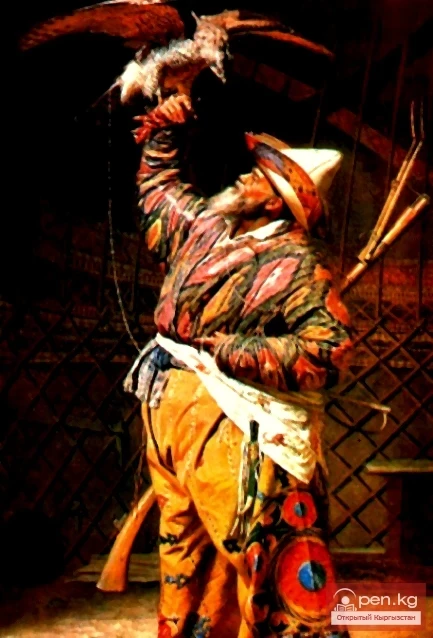
Divinations of the Ancient Kyrgyz
Let us now turn to the ancient myths and legends of the ancient Kyrgyz people regarding cosmology...
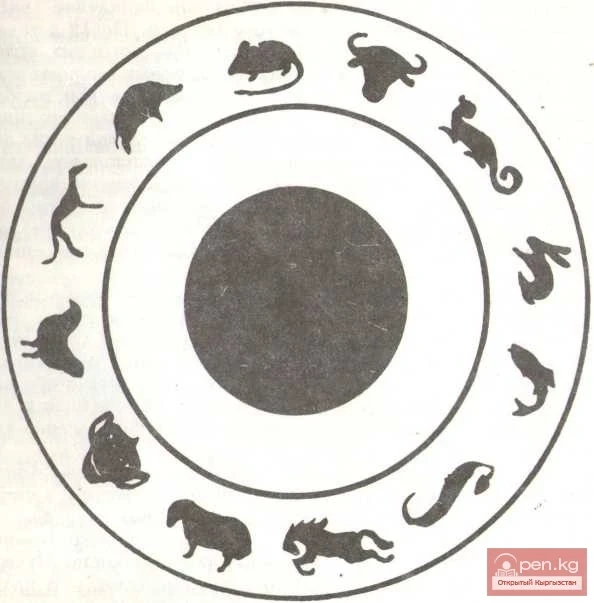
Chronology among the Kyrgyz
Kyrgyz Calendar with a 12-Year Cycle Among the Kyrgyz (as well as many other peoples), a 12-year...

The Influence of Stars on People's Lives
Tootaydyn Ogu (stars I and V, located below the Belt of the Three Kings). The ancient Kyrgyz were...
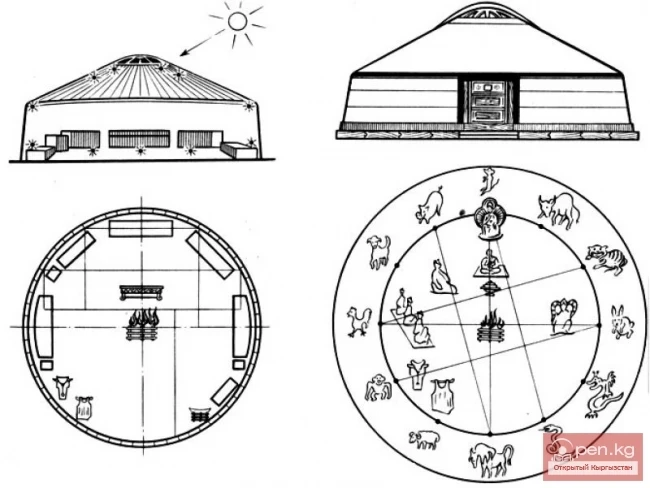
The Concept of Time Among the Kyrgyz
In ancient times, the functions of a compass and a clock were performed by the Sun, the Moon,...
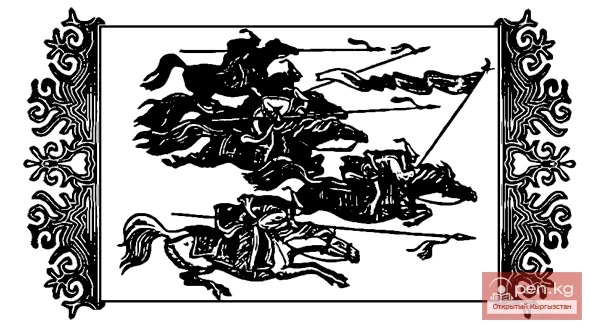
The Epic of "Manas": The March into Campaign and Victory over Tekes-Khan
The campaign and victory over Tekes-khan Hey! Two months have passed since We held a gathering in...

The Origin of the Names of Stars and Constellations among the Kyrgyz
After the Sun and the Moon, the brightest celestial body is the beautiful Cholpon, whom the Kyrgyz...
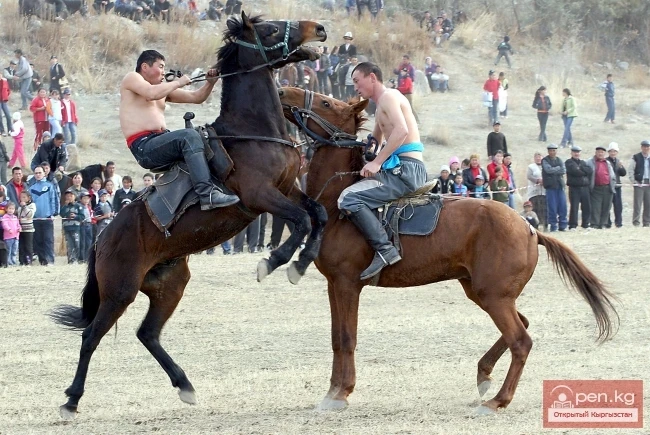
The title "Оодарыш" can be translated to English as "Oodarysh." It appears to be a proper noun, possibly a name or a title, and may not have a direct translation.
Oodarysh is a horse wrestling competition that requires great physical strength and agility,...
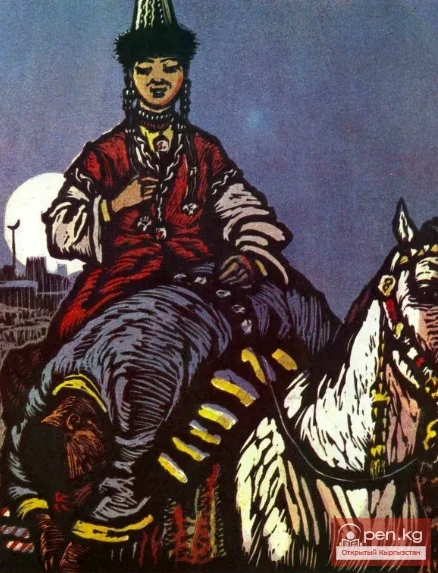
Kanikey — the queen, wife of Manas. Part - 3
Part 3 Kanykey becomes a mother, raising her son. The name of the mother is sacred, her milk is...
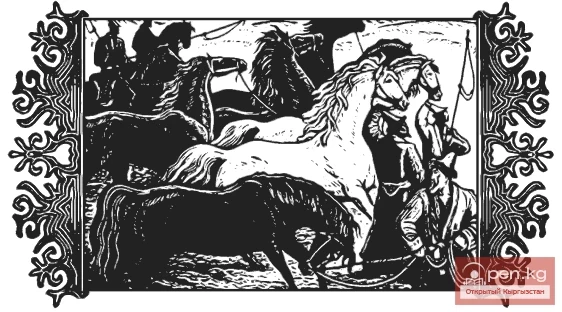
The Epic "Manas". A Review of the Horses
Horse Race Early in the morning, at dawn, As the green flag of Koketey Fluttered in the rays of...
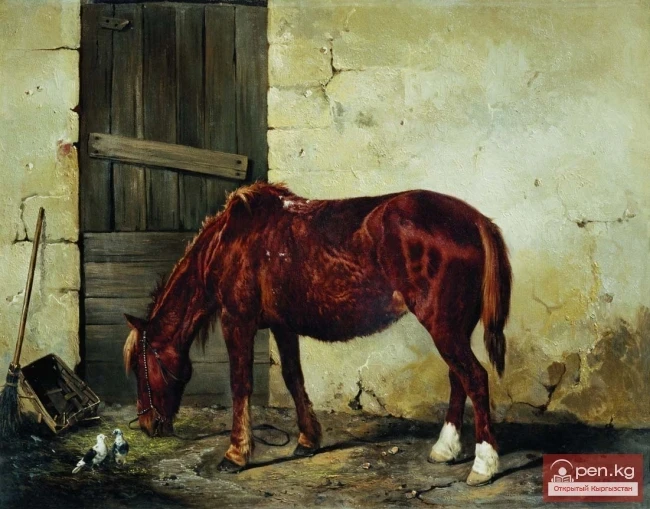
Tolubai-Synch — Expert in Racing Qualities of Horses
Once upon a time in the mountains lived Tolubai-Synch — an expert on the racing qualities of...
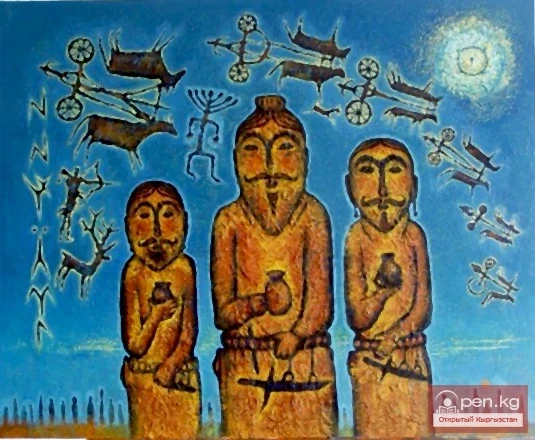
Astrological Concepts in the Knowledge System of the Kyrgyz People
Astrology was considered a false teaching among us, and the ban on it lasted for 60 years,...
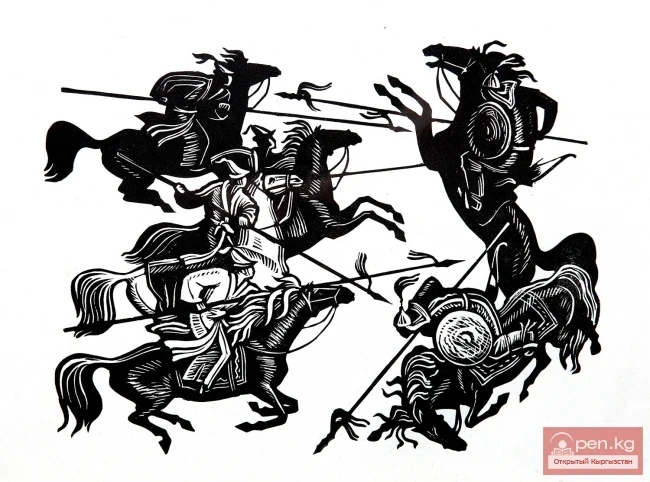
"The Great Campaign" Against the Kara-Kitai
The Basis of the “Great Campaign” in the Epic of “Manas” According to Ibn al-Asir (“Kitab...
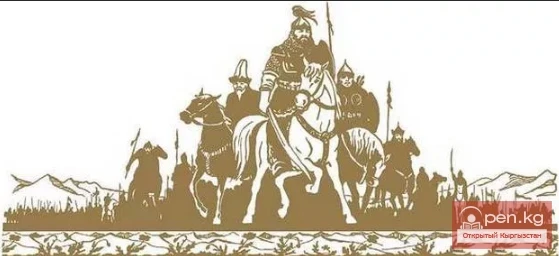
Epic "Manas". Return from the Great Campaign. Part - 2
Return from the Great Campaign. Part - 2 When they passed the Great Wall of China, They settled...
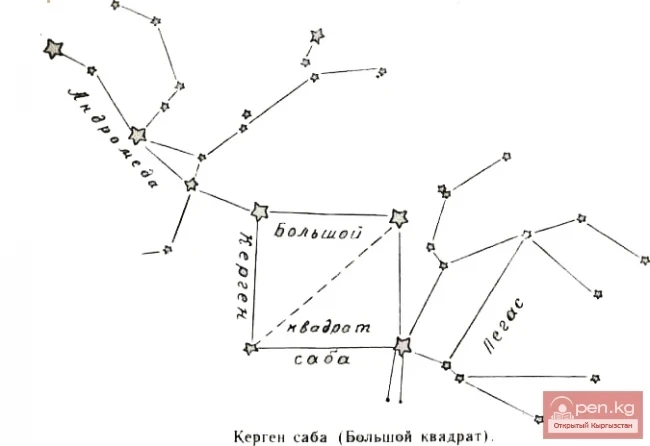
Astronomical Knowledge of the Ancient Kyrgyz
The first representations of people about nature were formed in deep antiquity. As the founders of...
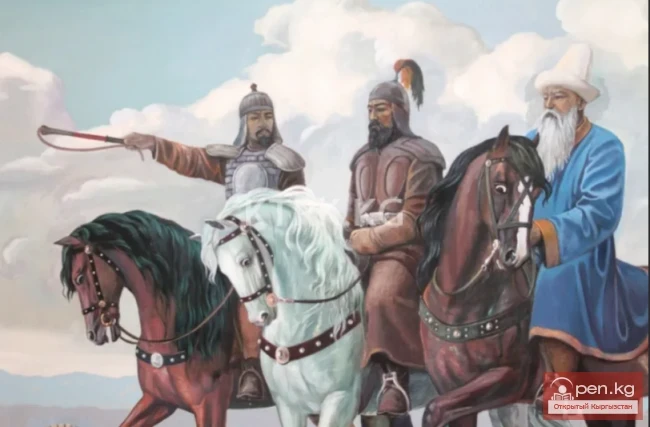
The Tale of Manas. The Great Campaign. Victory over Konurbay. Part - 1
The Great Campaign. Victory over Konurbay. Almambet and Syrgak, having left Beidzhin, crossed the...
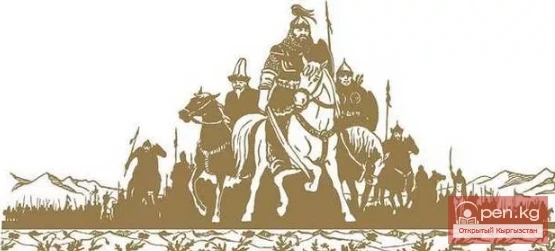
Epic "Manas". The Great Campaign. The Wounding of Manas and the Return of the Kyrgyz to Talas. Part 1
The Great Campaign. The Wounding of Manas and the Return of the Kyrgyz to Talas. Manas imposed a...
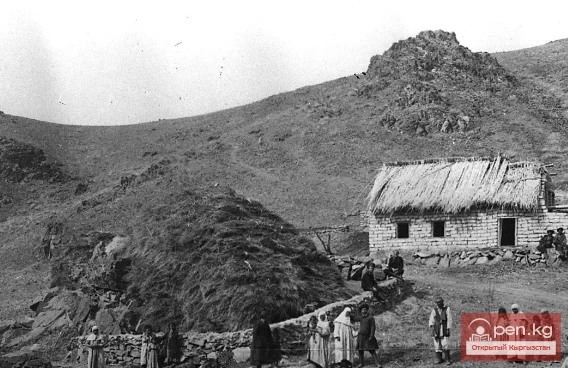
The 19th Century — A Century of Radical Change in the Lives of the Kyrgyz
Settlements and Permanent Housing The 19th century was a turning point in the life of the Kyrgyz....
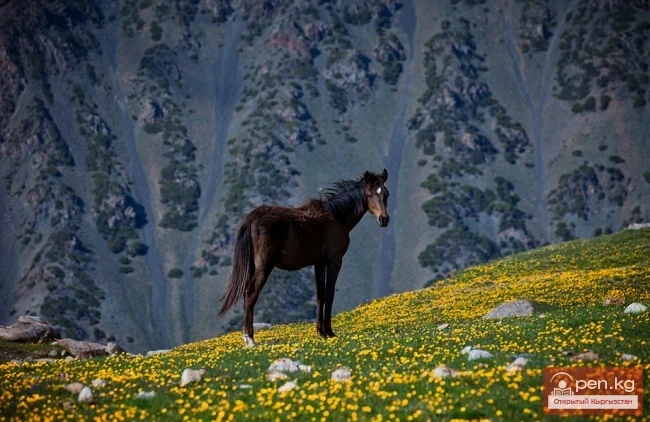
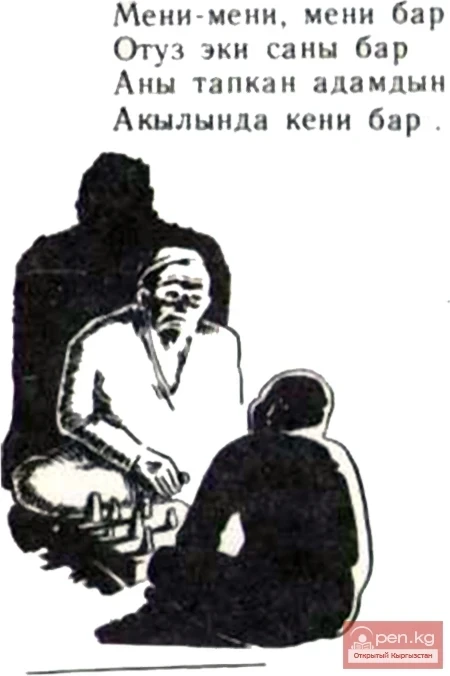
Measurement Systems and Counting among the Kyrgyz
The need for measurement and counting arose among the Kyrgyz in the context of their relatively...
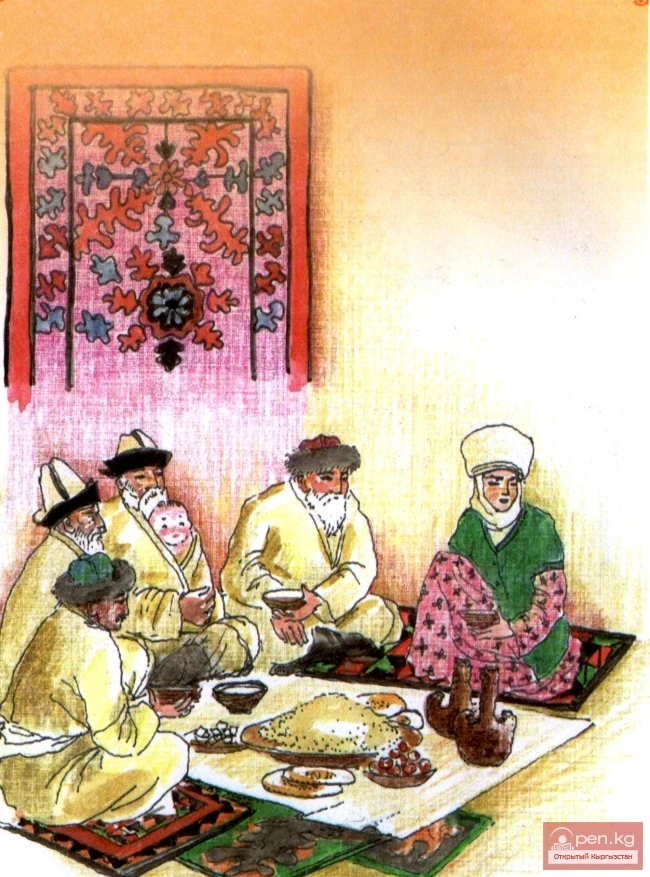
The title translates to: "The Name of the Baby (AT KOYUU) and Put on a Horse (ATKA MINGIZUU)"
NAME OF THE INFANT (AT KOYUU) NAME OF THE INFANT (AT KOYUU)...
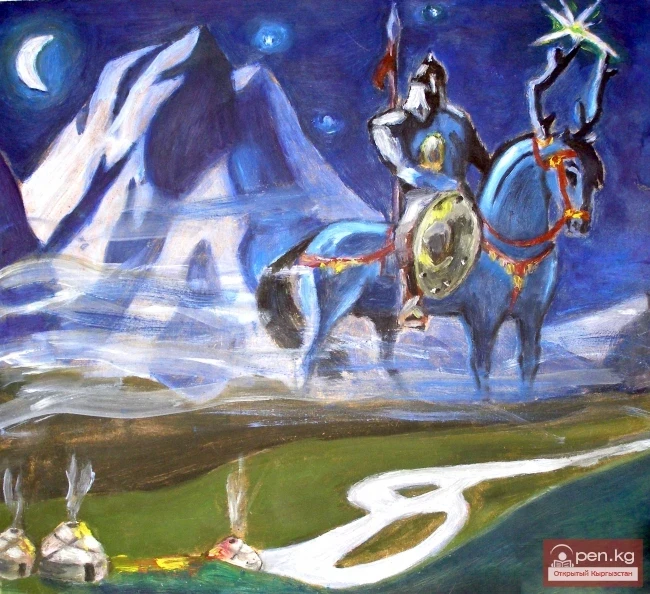
Manas Names the Villages
Manas was once at Issyk-Kul. At the place where the village of Tamga is now located, he marked his...
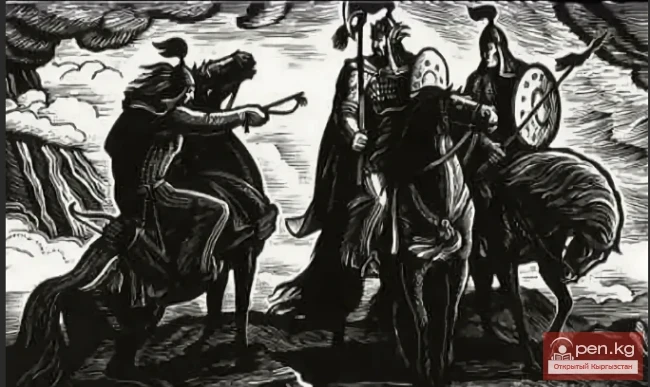
The Tale of Manas. The Great Campaign. The Quarrel of Almambet with Chubak.
The Great Campaign. The Quarrel of Almambet with Chubak. After Almambet's departure, forty...
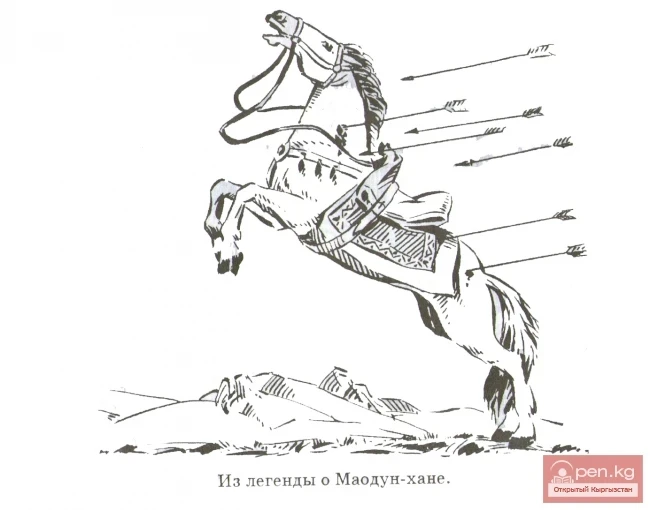
Ancient Kyrgyz under the Rule of the Huns
The word “Kyrgyz” is first mentioned alongside the name of the king of the Huns, Maodun-khan...
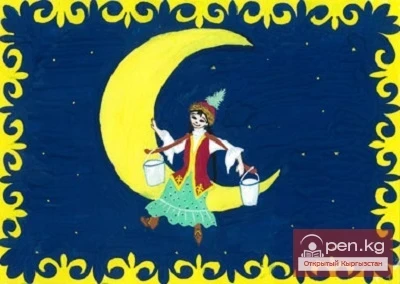
The Views of Ancient Kyrgyz on the Structure of the Surrounding World
Alongside correct, positive interpretations of natural phenomena, the Kyrgyz also held incorrect,...
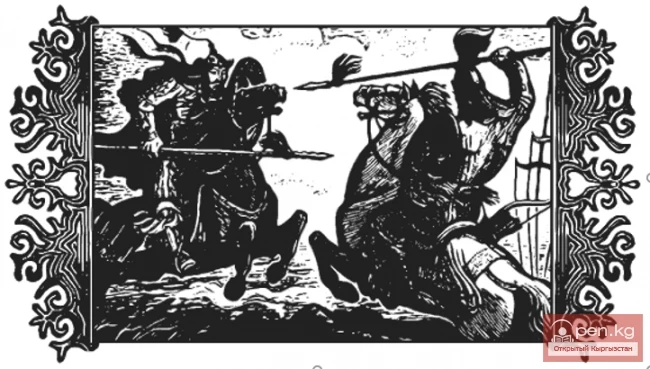
The Epic of "Manas". The Duel of Manas with Konurbai
The Duel of Manas with Konurbai The son of Koketey Bokmurun The latter announced the tournament. —...
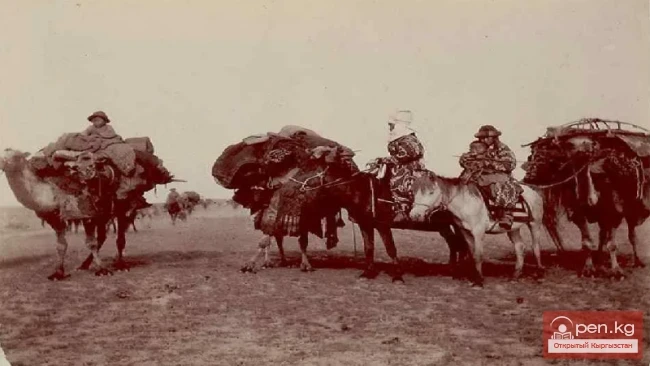
The migrations of Kyrgyz people from winter encampments to spring and summer pastures
Migrations of Kyrgyz to Jailoo A significant event in the life of nomadic Kyrgyz was the migration...
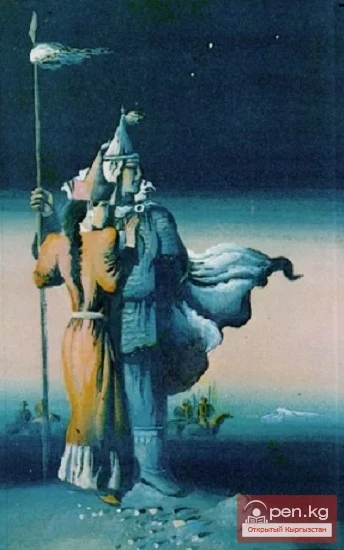
Kanykey — Queen, Wife of Manas. Part - 2
Part 2. Kanykey — the queen, wife of Manas Becoming the life companion of Manas, Kanykey actively...
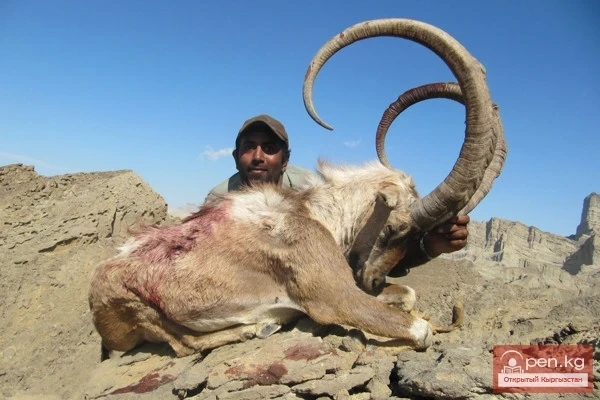
Trophy Qualities of Animals
It is very difficult to hunt a truly trophy animal. In different regions of Kyrgyzstan, the size...
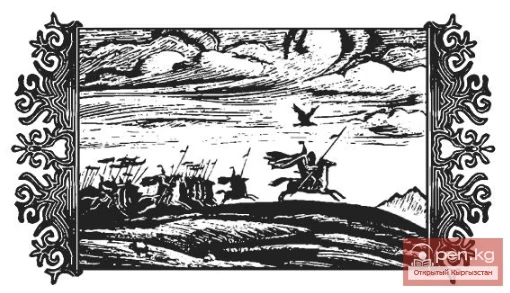
The Tale of Manas. The Great Campaign. The March Begins. Part - 2
The Great Campaign. Setting Out on the Campaign. In the morning, Manas distributed to all the...
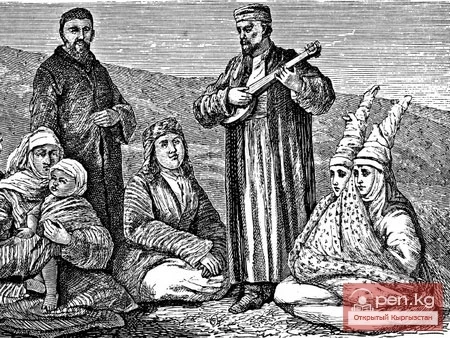
Worldview Concepts of the Surrounding World
Most geographical names in Kyrgyzstan have local etymology. The origin of several toponyms is...
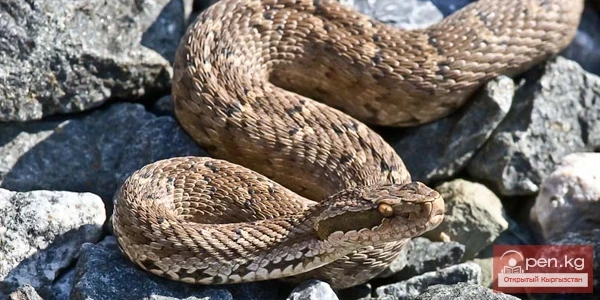
Man and Nature in Oral Folk Art
The relationship of humans to nature, animals, and plants is determined not only by their natural...

Kyrgyzstan – a Full-Cycle Resort Zone
There is a lot of sun in Kyrgyzstan. The average annual duration of sunshine here ranges from 2500...
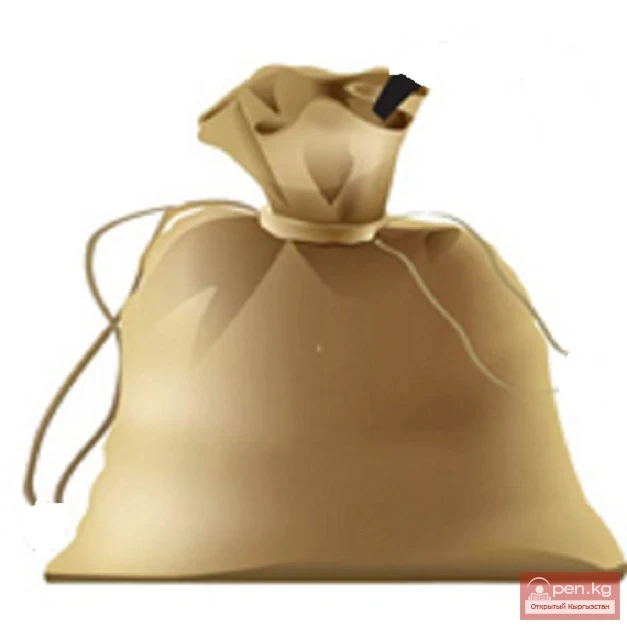
Father in a Bag
Father in a Bag A father lived with his son and daughter-in-law. His wife had died, and he was...
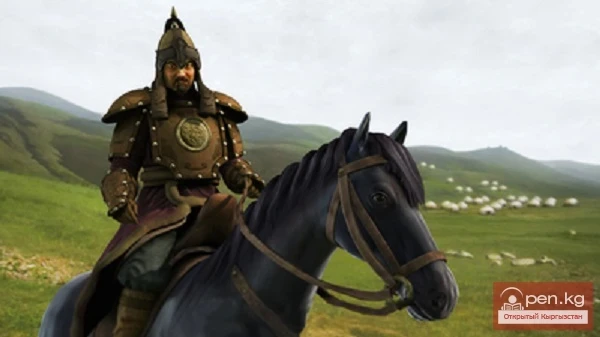
Generations of Kyrgyz and Kemkemchut
Excerpt from the work of Abu-l-Ghazi (1603—1664) — almost a retelling from Rashid ad-Din's...
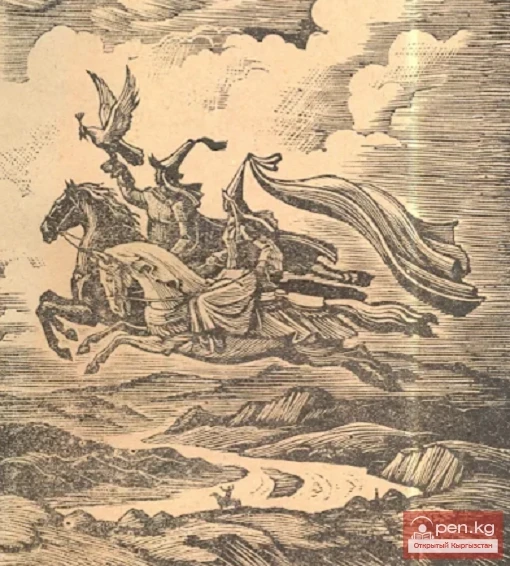
Semetey. The Childhood of Semetey. Part - 1
Childhood Years of Semetey. Part - 1 Growing up, Semetey did not yet know That his father was the...
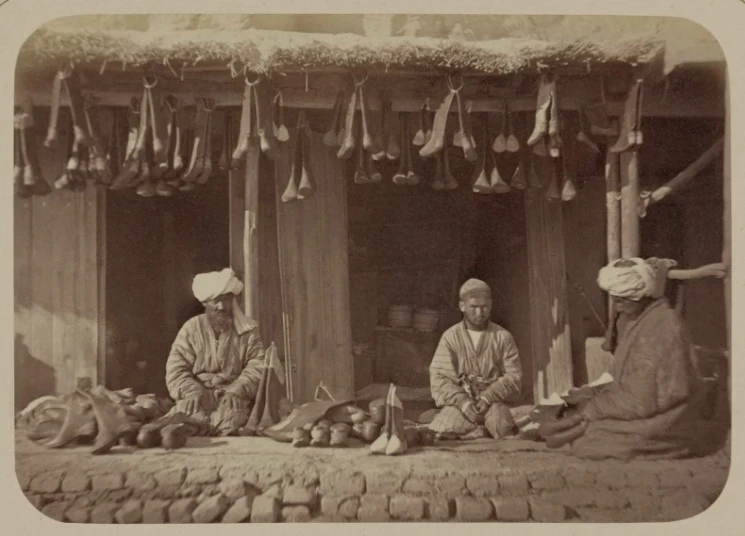
Clothing of the Southern Kyrgyz. Part - 2
Among the ready-made items purchased by Kyrgyz people, in addition to light robes, were quilted...
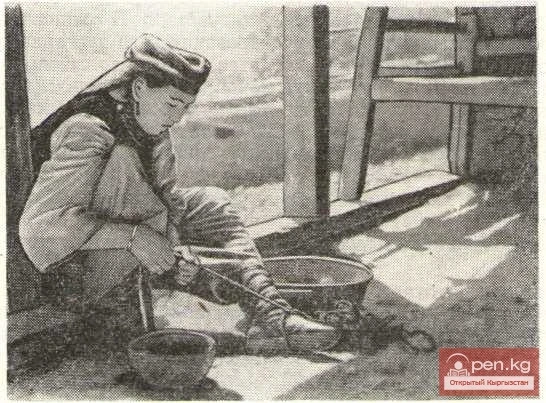
Carpet Weaving among the Kyrgyz
In the 19th century, especially in its second half, carpet weaving in southern Kyrgyzstan was...
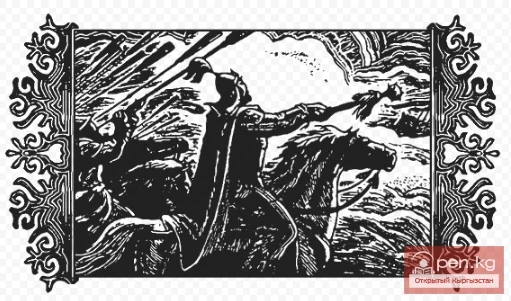
The Tale of Manas. The Great Campaign. Almambet Becomes the Leader of the Army
The Great Campaign. Almambet takes command of the army. Manas, riding at the head of the army,...

Interesting Facts About the Sun
The speed of light in a vacuum is 299,792,458 m/s (≈300,000 km/s) We do not see the Sun; we see...

Weather Predictors among the Kyrgyz
Weather and its Predictors. Nomadic life is characterized not only by closeness to nature but also...
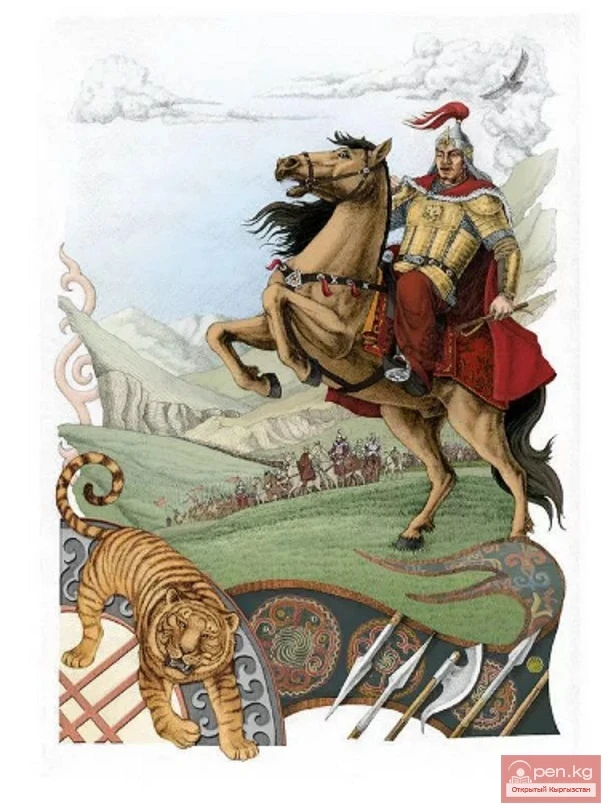
The Tale of Manas. How Manas Sowed Wheat and Bought Himself a Shark
ABOUT HOW MANAS SOWED WHEAT AND BOUGHT HIMSELF AKKULA Thanks to the fame of his son, who was...

3-Day Hike in the Style of TOS
For the first time in Central Asia, within the framework of the "Theory of Constraints"...
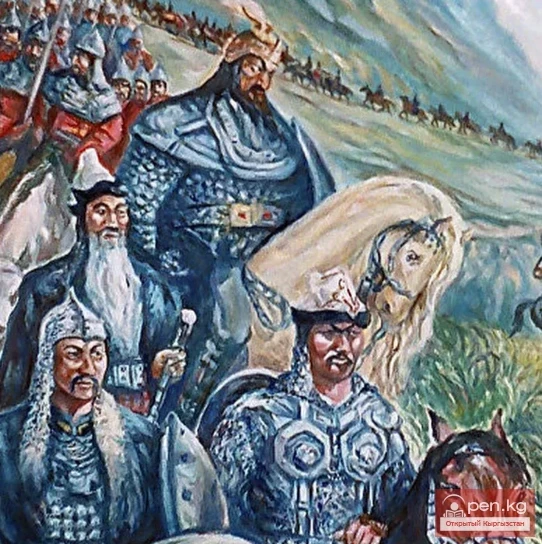
The Tale of Manas. The Great Campaign. Departure for the Campaign. Part - 1
The Great Campaign. The Start of the Campaign. At the appointed time set by Manas, after forty...
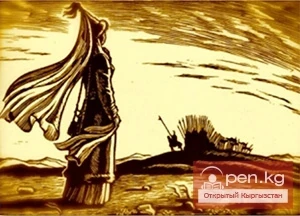
The Kyrgyz Perceptions of Geological Phenomena
Did the ancient Kyrgyz have ideas about the movement and structure of the Earth's surface?...
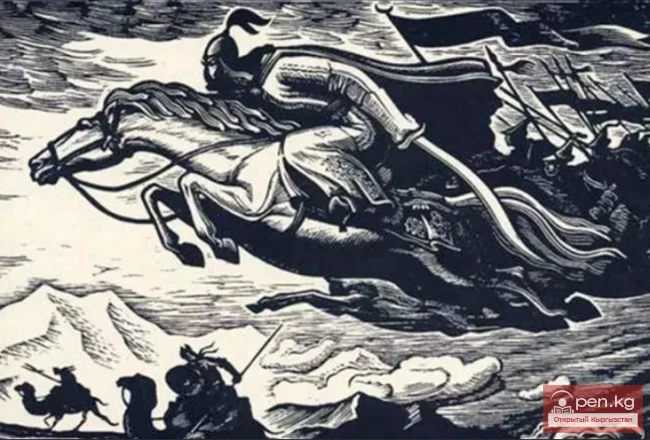
The Tale of Manas. Remembrance of Kyokyoktyu. Part - 3
Mourning for Kököktöy. Part - 3 Manas was placed in the yurt of the glorious and renowned girl...

Hiking with a Child
How to Prepare for a Hike with a Child Hiking with a child is always an interesting and...

World Nomad Games 2014
From September 8 to 14, 2014, the World Nomad Games will take place in the city of Cholpon-Ata on...
